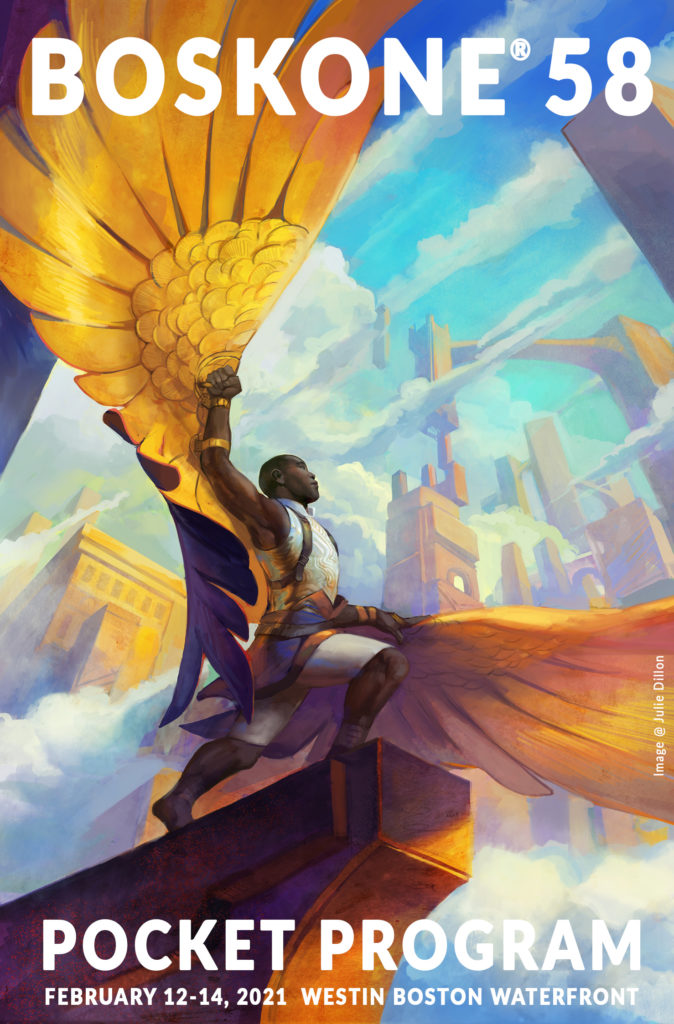 Back in the “Golden Age of Science Fiction,” all the leading characters were light-skinned by implication. Well, all the human characters. The aliens were often green or blue. It wasn’t that the authors set out to portray white-only casts or mentioned every character’s appearance; it was just the default, and most writers (themselves light-skinned) rarely thought about it.
Back in the “Golden Age of Science Fiction,” all the leading characters were light-skinned by implication. Well, all the human characters. The aliens were often green or blue. It wasn’t that the authors set out to portray white-only casts or mentioned every character’s appearance; it was just the default, and most writers (themselves light-skinned) rarely thought about it.
The situation slowly changed. Heinlein’s Starship Troopers, published in 1959, presented a thoroughly international and multi-ethnic military. We’ve reached the point where characters of all physical types and ethnic origins appear in SF. It’s happened in nearly all kinds of fiction; I’m focusing on SF because it’s what I’m familiar with.
But now there’s a nasty push back. Some people want fiction re-segregated. At first I thought it was just a fringe movement with no significance, but it’s gaining in influence. I keep seeing would-be writers apologetically posting to Reddit, asking whether it’s OK for their stories to have characters whose skin color doesn’t match their own. The responses are overwhelmingly “yes,” so it’s still on the fringe, but it’s a toxic idea that needs firm rejection.
The segregationists say things like “It’s not your story to tell,” as if all fiction must be autobiographical at its core. Fiction would be boring if authors wrote only about people like themselves. It would suggest that people who are different aren’t worth acknowledging.
If telling a story which isn’t “mine to tell” is a crime, The Magic Battery is damning evidence against me. It’s about people in the 16th century; I’ve lived in the 20th and 21st. It’s about Germans; I’m a native-born American who grew up with Greek culture. The characters are all Christian or Jewish (though I’m not entirely sure about Inge and Johan); I’m an atheist. The protagonist uses magic; I have no magical powers. Granted, the characters all have light skins; it’s hard to do anything else given the period and location. (But I think “Washington’s Slave” is one of my better songs.)
Why did I pick that setting? Because German history fascinates me, and the Reformation was an especially interesting period, with clashes of ideas. I’ve visited Germany many times and know the language moderately well. I did lots of research to get the historical and cultural aspects of the story right.
The cry of “cultural appropriation” denounces the mixing of cultural elements. Each culture must retain its purity. As if cultures have ever stayed “pure” when they met. An inbred culture is a feeble one. Fusion delivers power, whether it’s in literature, music, dancing, or food. What would a pure, white American culture even be? Our culture is a mix of influences from all over the world. The African, Caribbean, and Latin American influences in our music are overwhelming. Imagine how dull it would be if it were restricted to English ballads.
However, the advice to “write what you know” is valid. Just don’t take it as limiting your writing to your personal experience. If you don’t know about something that will go into your story, research, research, research. Don’t stereotype; your characters are individuals, not specimens. Talking with people who have relevant experience helps. Having them review your writing will help to avoid blunders. Jewish readers helped me to avoid some in my novel. Whatever your setting is, you can write about personality types that you understand.
The narratives of “tell only your own story” and “don’t appropriate cultural elements” are toxic. If someone foists them on you, turn them down. Don’t apologize. Write well and don’t be a hack.
An excellent book by the way. Just on the subject of lily-white. If you know Billy Connolly, you may remember his talk about being white. “I’m Scottish. I’m pale blue. I sit in the sun and turn blue. I know English people who turn pink. I’ve never seen a f***ing white person.” And on it goes. ;-)